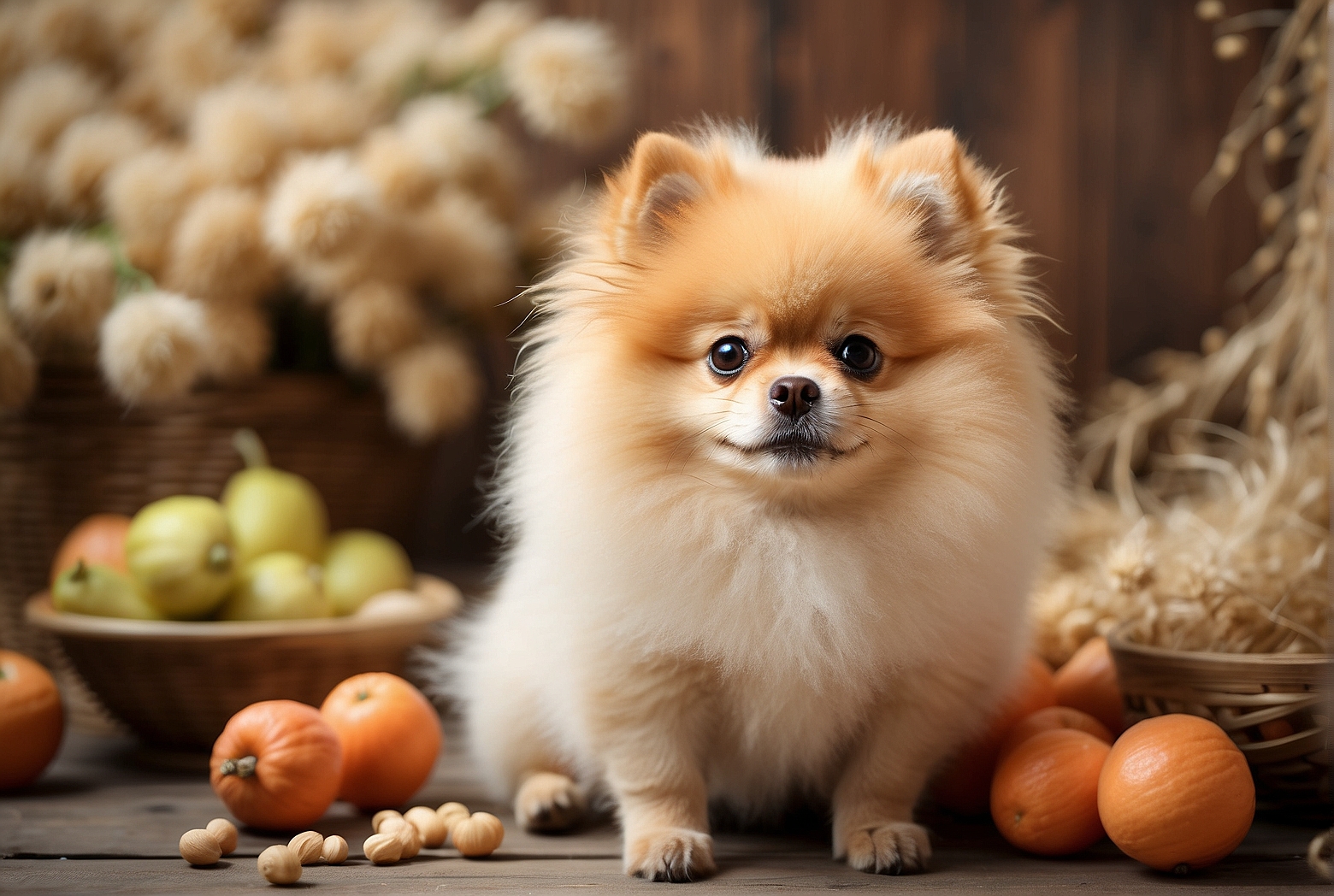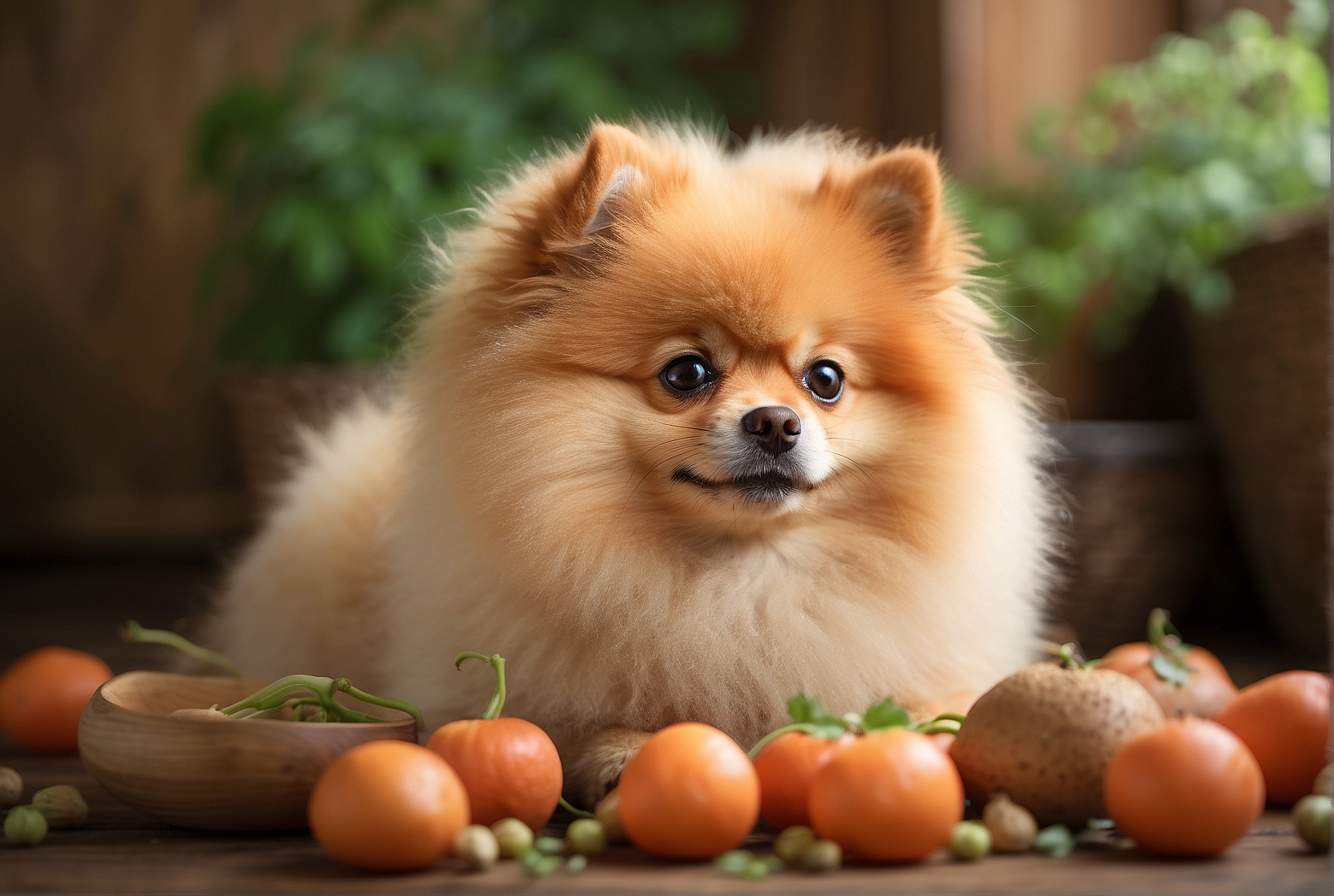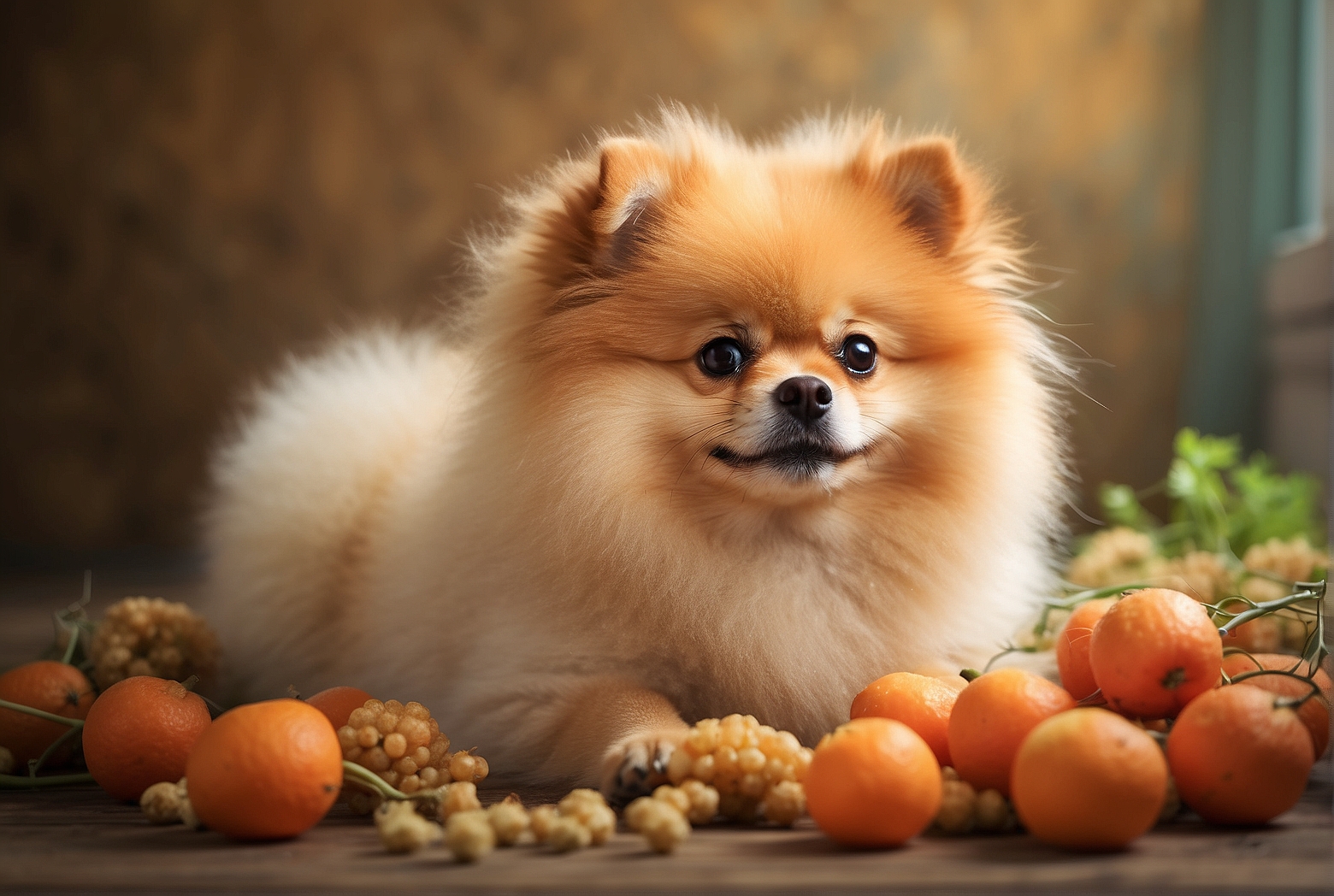If you have a beloved Pomeranian that suffers from allergies, finding the right food to help alleviate their symptoms can make all the difference. In this article, we will explore the top Pomeranian allergy-friendly foods that can nourish your furry friend while minimizing the risk of triggering allergic reactions. By understanding the best food options for Pomeranians with allergies, you can ensure that your pet remains happy, healthy, and free from discomfort. So, let’s dive into the world of allergy-friendly foods for your Pomeranian companion.
Introduction to Pomeranian Allergies
Understanding Pomeranian Allergies
If you own a Pomeranian, you may be familiar with their susceptibility to allergies. Pomeranians, like many other dog breeds, can develop allergies to certain foods. Allergies occur when the immune system overreacts to a particular substance or ingredient, causing a range of symptoms. Identifying and addressing these allergies is crucial for the health and well-being of your furry friend.
Common Allergic Reactions in Pomeranians
Pomeranians can experience a variety of allergic reactions, including skin irritations, itchiness, gastrointestinal issues, and respiratory problems. These reactions can not only be uncomfortable for your dog but can also diminish their quality of life. It is essential to be aware of the signs and symptoms of allergies in Pomeranians and take appropriate action to manage and alleviate their discomfort.
Importance of Allergy-Friendly Foods
One of the most effective ways to manage and prevent allergies in Pomeranians is through their diet. Just like humans, Pomeranians can be allergic to certain foods or ingredients. By selecting allergy-friendly foods, you can minimize the risk of triggering an allergic reaction and promote overall health and wellness in your fluffy companion. Identifying the specific food allergens and incorporating the right nutrients into their diet is key to providing relief and maintaining their well-being.
Identifying Food Allergens
Common Food Allergens in Pomeranians
When it comes to food allergies in Pomeranians, some ingredients are more likely to spark a reaction than others. Common food allergens in Pomeranians include beef, chicken, dairy products, eggs, wheat, soy, and corn. However, it is essential to remember that each dog is unique, and their reactions can vary. Your Pomeranian may have an allergy to one or more of these ingredients or even have allergies to different ingredients not mentioned here. It is crucial to monitor their reactions and consult with your veterinarian to accurately identify and understand their specific food allergens.
Signs and Symptoms of Food Allergies
Food allergies in Pomeranians can manifest in various ways. Some common symptoms include excessive scratching, licking, and biting at their skin, red and inflamed skin, ear infections, gastrointestinal issues such as vomiting or diarrhea, and respiratory problems like coughing or sneezing. These symptoms can be distressing for your Pomeranian, and they may also lead to secondary health issues. If you notice any of these signs, it is crucial to consult with your veterinarian to determine if food allergies are the cause.

Food Allergy Testing for Pomeranians
If you suspect that your Pomeranian has food allergies, your veterinarian may recommend food allergy testing. This testing can help identify specific ingredients or proteins that trigger an immune response in your pooch. Common methods of food allergy testing in dogs include elimination diets, where potential allergens are gradually removed from the diet, and blood tests or intradermal skin testing. These tests can provide valuable insights into your Pomeranian’s allergies, allowing you to make informed decisions about their diet.
Essential Nutrients for Allergy-Friendly Foods
High-Quality Proteins
When selecting allergy-friendly foods for your Pomeranian, it is crucial to prioritize high-quality proteins. Pomeranians require a protein-rich diet to support their overall health and maintain strong muscles. Opt for lean protein sources that are less likely to trigger allergies, such as chicken, turkey, fish, duck, or lamb. These proteins provide essential amino acids while minimizing the risk of adverse reactions in sensitive Pomeranian tummies.
Digestible Carbohydrates
Digestible carbohydrates are another essential component of allergy-friendly foods for Pomeranians. Carbohydrates provide energy and support digestion in your furry friend. Opt for easily digestible carbohydrates like sweet potatoes, peas, quinoa, brown rice, or oats. These carbohydrates are less likely to cause digestive upset and provide valuable nutrients to support your Pomeranian’s overall well-being.
Healthy Fats
Incorporating healthy fats into your Pomeranian’s diet is crucial for their skin health and to alleviate any inflammation caused by allergies. Healthy fats provide valuable omega-3 and omega-6 fatty acids, which support a healthy coat and immune system. Coconut oil, flaxseed oil, fish oil, sunflower oil, and olive oil are excellent sources of healthy fats for Pomeranians with allergies.
Vitamins and Minerals
Allergy-friendly foods should also contain a wide range of essential vitamins and minerals to support your Pomeranian’s overall health. Vitamin E, vitamin C, zinc, selenium, and DHA (docosahexaenoic acid) are particularly beneficial for reducing the risk and impact of allergies. These nutrients promote a healthy immune system, reduce inflammation, and support skin health in Pomeranians.
Omega-3 Fatty Acids
Omega-3 fatty acids, specifically EPA (eicosapentaenoic acid) and DHA, play a crucial role in reducing inflammation and alleviating allergy symptoms. These fatty acids have been shown to support skin health, reduce itching, and boost the immune system. Incorporating omega-3 fatty acids into your Pomeranian’s diet through specialized allergy-friendly foods or supplements can significantly benefit their overall well-being.

Top Allergy-Friendly Protein Sources
Lean Chicken
Lean chicken is a popular and easily digestible protein source for Pomeranians with allergies. Chicken provides essential amino acids while being a relatively low-risk allergen compared to other meat sources. Ensure that the chicken is boneless, skinless, and cooked thoroughly to avoid any potential digestive issues or contamination.
Turkey
Turkey is another lean protein option that is often well-tolerated by Pomeranians. It provides essential nutrients while being a novel protein source for those with allergies. As with chicken, make sure the turkey is cooked thoroughly and does not contain any added seasonings or oils that could trigger a reaction.
Fish (Salmon, Whitefish)
Fish, particularly salmon and whitefish, is an excellent allergy-friendly protein source for Pomeranians. Fish is rich in omega-3 fatty acids, which have anti-inflammatory properties and can help alleviate allergy symptoms. Opt for boneless and cooked fish to minimize the risk of any digestive issues or bones.
Duck
Duck is a novel protein source that can be beneficial for Pomeranians with allergies. It offers a different protein profile from more common sources like chicken or beef, reducing the risk of triggering an allergic reaction. Cook the duck thoroughly, remove any bones, and avoid using seasonings or additives.
Lamb
Lamb is an alternative protein source that can be suitable for Pomeranians with allergies. It provides essential amino acids and can be a less allergenic option compared to some other meats. Ensure that the lamb is cooked thoroughly and consider using lean cuts to minimize fat content.
Healthy Carbohydrate Options
Sweet Potatoes
Sweet potatoes are a nutritious and easily digestible carbohydrate source for Pomeranians. They are rich in fiber, vitamins, and minerals while being low in fat. The natural sweetness of sweet potatoes makes them a palatable option for dogs, and they also provide essential antioxidants to support your Pomeranian’s overall health.
Peas
Peas are another allergy-friendly carbohydrate option for Pomeranians. They are packed with fiber, protein, vitamins, and minerals, making them a nutritious addition to your dog’s diet. Peas also offer natural antioxidant properties and can help support digestive health.
Quinoa
Quinoa is a pseudocereal that is highly nutritious and gluten-free, making it an excellent option for Pomeranians with allergies. It is a complete protein source, meaning it contains all essential amino acids. Quinoa is also rich in fiber, vitamins, and minerals, providing valuable nutrients to support your Pomeranian’s well-being.
Brown Rice
Brown rice is a staple carbohydrate for many dogs, suitable for those with allergies. It is a highly digestible and gluten-free option that provides energy and essential nutrients. Brown rice also contains fiber, vitamins, and minerals, making it a nutritious component of allergy-friendly diets.
Oats
Oats are a wholesome and easily digestible carbohydrate source for Pomeranians. They offer dietary fiber, vitamins, and minerals while being low in fat. Oats can also provide a soothing effect on your Pomeranian’s digestive system and help alleviate any gastrointestinal discomfort caused by allergies.
Beneficial Fats for Pomeranian Allergies
Coconut Oil
Coconut oil is a popular addition to allergy-friendly diets for Pomeranians. It contains medium-chain triglycerides, which can help boost the immune system, support healthy skin, and reduce inflammation. Start by introducing coconut oil in small amounts and gradually increase the dosage to avoid any potential digestive issues.
Flaxseed Oil
Flaxseed oil is a rich source of omega-3 fatty acids and can be beneficial for Pomeranians with allergies. It has anti-inflammatory properties and supports healthy skin and coat. Remember to store flaxseed oil properly to preserve its nutritional benefits, and consult with your veterinarian for the recommended dosage.
Fish Oil
Fish oil is an excellent source of omega-3 fatty acids, specifically EPA and DHA. It can help reduce inflammation, support cardiovascular health, and alleviate allergy symptoms in Pomeranians. It is important to choose fish oil specifically made for dogs and consult with your veterinarian for the appropriate dosage based on your Pomeranian’s weight and health condition.
Sunflower Oil
Sunflower oil is another option for incorporating healthy fats into your Pomeranian’s diet. It contains omega-6 fatty acids, which can promote healthy skin and coat. When using sunflower oil, opt for cold-pressed, high-quality varieties, and ensure you are using it in moderation to avoid excess fat intake.
Olive Oil
Olive oil is a well-known and easily accessible source of healthy fats for Pomeranians. It provides monounsaturated fats, which can contribute to a healthy coat and immune system. Use extra virgin olive oil in small amounts as a topping or mix it into your Pomeranian’s food to reap the benefits without overloading their diet with fats.
Key Vitamins and Minerals for Allergies
Vitamin E
Vitamin E is a powerful antioxidant that plays a crucial role in supporting the immune system and reducing inflammation. It can help alleviate allergy symptoms and promote overall skin health in Pomeranians. Incorporate vitamin E-rich foods into your dog’s diet, such as almond oil, sunflower seeds, spinach, and broccoli. Consult with your veterinarian for appropriate vitamin E supplementation if needed.
Vitamin C
Vitamin C is another important antioxidant that supports the immune system and reduces inflammation in Pomeranians. It can help alleviate allergy symptoms and support overall health. Natural food sources of vitamin C include citrus fruits, strawberries, bell peppers, and leafy greens. Discuss with your veterinarian if vitamin C supplementation is necessary for your Pomeranian.
Zinc
Zinc is a vital mineral that is involved in various bodily functions, including immune system health. It can help reduce inflammation and boost immune responses in Pomeranians with allergies. Foods rich in zinc include meat, fish, pumpkin seeds, and lentils. Ensure that your Pomeranian’s diet includes adequate zinc levels or consult with your veterinarian for supplementation if needed.
Selenium
Selenium is an essential trace mineral that supports antioxidant defenses and immune system function. It can help reduce allergic reactions and protect against cellular damage caused by allergies. Natural sources of selenium include Brazil nuts, whole grains, meat, and fish. Ensure that your Pomeranian’s diet contains sufficient selenium levels or speak to your veterinarian about supplementation.
DHA
Docosahexaenoic acid (DHA) is an omega-3 fatty acid that plays a crucial role in brain development and supports cognitive function. It can also help reduce inflammation and support overall health in Pomeranians with allergies. DHA is commonly found in fish oil, algae-derived supplements, and fortified foods. Consult with your veterinarian to determine the appropriate DHA supplementation for your furry friend.
The Role of Omega-3 Fatty Acids
Benefits of Omega-3
Omega-3 fatty acids, specifically EPA and DHA, offer numerous benefits for Pomeranians with allergies. These essential fatty acids have anti-inflammatory properties that can help alleviate itching, redness, and inflammation caused by allergic reactions. Omega-3 fatty acids also support healthy skin and coat, boost the immune system, and contribute to overall well-being.
Rich Sources of Omega-3
Incorporating rich sources of omega-3 fatty acids into your Pomeranian’s diet can significantly contribute to managing their allergies. Fatty fish, such as salmon, mackerel, sardines, and trout, are excellent natural sources of omega-3. Fish oil supplements specifically formulated for dogs are also a convenient way to ensure your Pomeranian receives sufficient omega-3.
Supplements for Omega-3 Intake
If you are unable to provide enough omega-3 fatty acids through natural dietary sources, supplements can be a helpful addition to your Pomeranian’s allergy-friendly diet. Fish oil supplements are widely available and can be specifically dosed for the size and needs of your Pomeranian. Consult with your veterinarian for the appropriate dosage and to ensure the quality and safety of the supplement you choose.
Avoiding Common Allergens
Identifying and Avoiding Allergenic Ingredients
To effectively manage your Pomeranian’s allergies, it is crucial to identify and avoid common allergenic ingredients. Read the ingredient labels carefully and avoid foods that contain known allergens such as beef, chicken, dairy products, eggs, wheat, soy, and corn. Opt for hypoallergenic, limited ingredient, or novel protein-based foods to minimize the risk of triggering an allergic reaction.
Reading and Understanding Food Labels
Reading and understanding food labels are essential skills when selecting allergy-friendly foods for your Pomeranian. Look for clearly labeled ingredients and avoid foods with artificial additives, preservatives, or fillers that may exacerbate allergies. Familiarize yourself with key terms such as “hypoallergenic,” “limited ingredient,” or “novel protein” to guide your choices. If you have any doubts or questions, consult with your veterinarian or a veterinary nutritionist for guidance.
Choosing Hypoallergenic and Limited Ingredient Foods
Hypoallergenic and limited ingredient foods are designed to minimize the risk of triggering allergic reactions in dogs. These foods typically contain novel protein sources that your Pomeranian may not have been previously exposed to, reducing the likelihood of an immune response. Limited ingredient foods have a reduced number of ingredients, making it easier to identify and avoid potential allergens. Consider these specialized options when selecting a diet for your Pomeranian with allergies.
Feeding Tips for Pomeranians with Allergies
Slow Transition to New Foods
When introducing new allergy-friendly foods into your Pomeranian’s diet, it is important to do so gradually. A slow transition allows their digestive system to adjust, minimizing the risk of any adverse reactions. Start by gradually substituting a small portion of their current food with the new food and gradually increase the proportion over several days or weeks.
Meal Schedule and Portion Control
Establishing a regular meal schedule and practicing portion control can help manage your Pomeranian’s allergies. Dividing their daily food into two or three meals can prevent overeating and regulate their digestion. Consult with your veterinarian to determine the appropriate portion size for your Pomeranian based on their age, weight, and activity level.
Food Rotation and Variety
Food rotation and variety can help prevent the development of new allergies and sensitivities in your Pomeranian. By regularly rotating different protein and carbohydrate sources, you reduce the risk of overexposure to specific ingredients and minimize the likelihood of developing allergies. Consult with your veterinarian for guidance on proper food rotation techniques and suitable options for your Pomeranian.
Importance of Fresh Water
Providing fresh water at all times is essential for Pomeranians with allergies. Proper hydration supports overall health and helps flush out toxins from the body. Ensure the water bowl is clean and refill it frequently to encourage your Pomeranian to stay hydrated and avoid any dehydration-related complications that can worsen allergy symptoms.
Regular Vet Check-ups
Regular vet check-ups are vital for monitoring and managing your Pomeranian’s allergies. Your veterinarian can provide essential guidance, perform allergy tests if necessary, and recommend appropriate dietary adjustments or supplements. Routine check-ups also allow for early detection of any potential health issues related to your Pomeranian’s allergies and ensure their overall well-being.
By understanding Pomeranian allergies, identifying food allergens, providing essential nutrients, and avoiding common allergens, you can effectively manage your Pomeranian’s allergies and promote their optimal health and well-being. Remember to consult with your veterinarian for personalized guidance and to address any specific concerns you may have. With the right approach and a well-balanced allergy-friendly diet, you can enjoy a happy and healthy life with your Pomeranian companion.
